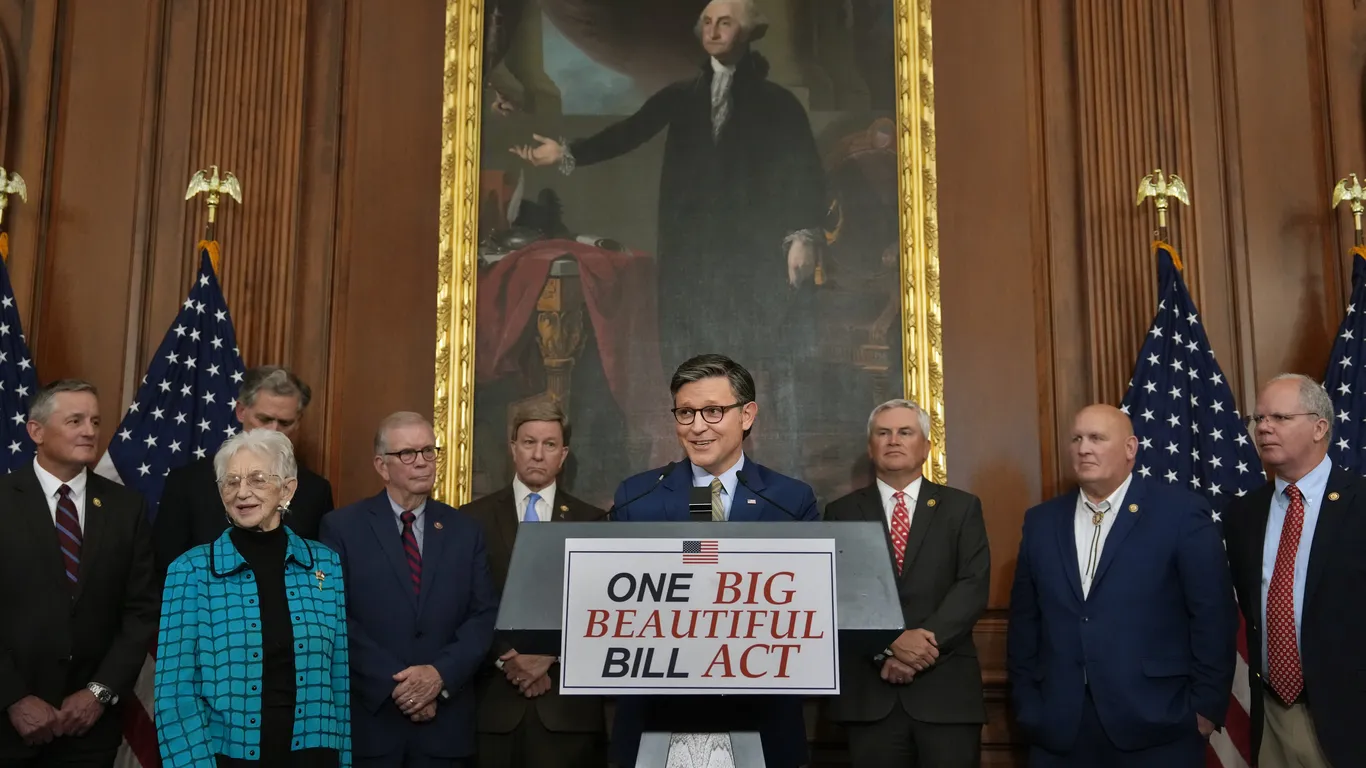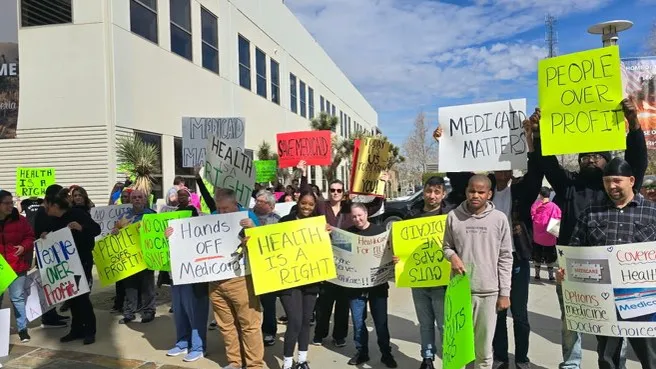The Republican Party has unleashed a devastating blow to the most vulnerable Americans with their latest tax and spending bill, which passed the Senate with Vice President JD Vance casting the tie-breaking vote. Dubbed the "One Big Beautiful Bill Act," this legislation extends tax cuts for the wealthy while effectively dismantling crucial social safety nets meant to protect low-income families, seniors, and children across the nation. The fallout from this bill is not just an economic issue; it is a direct assault on the health and wellbeing of millions.
Medicaid Cuts Will Leave Millions Uninsured
Under the new provisions, millions of Medicaid enrollees will be forced to comply with stringent work requirements, restricting access to essential health services. An estimated 12 million individuals could lose their coverage by 2034, primarily due to these work mandates. The bill requires able-bodied enrollees aged 19 to 64 to work at least 80 hours per month, a condition that will disproportionately affect single parents and low-income families—many of whom are already juggling multiple jobs to make ends meet.
As the American Hospital Association warns, the cuts may force rural hospitals to close, exacerbating healthcare disparities in underserved communities. This is not just a policy failure; it is a moral failure that prioritizes corporate tax cuts over the health of our citizens.
Food Security at Risk with SNAP Changes
The bill also broadens work requirements for the Supplemental Nutrition Assistance Program (SNAP), impacting millions who rely on food assistance. The new stipulations extend to older adults and vulnerable populations such as veterans and foster youth. States will be forced to shoulder more costs, potentially leading to benefits cuts that would further endanger food security.
As reported by The New York Times, many states may withdraw from SNAP altogether, a move that could plunge countless families into deeper poverty and hunger. This legislation does not just create barriers to food access; it actively dismantles the support systems that keep families afloat.

Trump, Mike Johnson faces Senate Repoublican opposition on ...
Healthcare Coverage Under Threat
For those enrolled in Affordable Care Act plans, the bill dramatically increases verification requirements, making it more difficult to receive subsidies. Millions could lose access to necessary healthcare, according to the Congressional Budget Office. The repercussions of these changes will be felt across the board, as uninsured individuals will further burden emergency rooms and drive up costs for everyone.
Tax Breaks Favor the Wealthy
While low-income Americans face unprecedented challenges, the bill rewards the wealthy with an estimated $12,500 tax cut for the top 20% of earners, according to Tax Policy Center analysis. This regressive approach consolidates wealth in the hands of a few while systematically dismantling the safety net for the most disadvantaged. The richest 60% of households will reap the majority of the benefits, while those at the bottom will receive an average of just $150—less than 1% of their after-tax income.

How did Medi-Cal start? Here"s a look at the California program
Environmental Impact of Tax Incentives
The bill also accelerates the end of tax incentives for renewable energy projects, a decision that stands contrary to the urgent need for climate action. As we face a climate crisis, this policy sets us back and undermines substantial progress toward sustainable energy solutions. The elimination of tax credits for electric vehicles will not only hurt the environment but also limit access to cleaner transportation options for all Americans.
In a world where climate justice is vital, this legislation represents a step backward, prioritizing outdated industries over innovative solutions. The implications of these cuts extend beyond immediate financial burdens—these changes will ripple through our society, affecting health, food security, and the very air we breathe.







![[Video] Gunfire between Iraqi security forces and Sadr militias in Baghdad](/_next/image?url=%2Fapi%2Fimage%2Fthumbnails%2Fthumbnail-1768343508874-4redb-thumbnail.jpg&w=3840&q=75)
